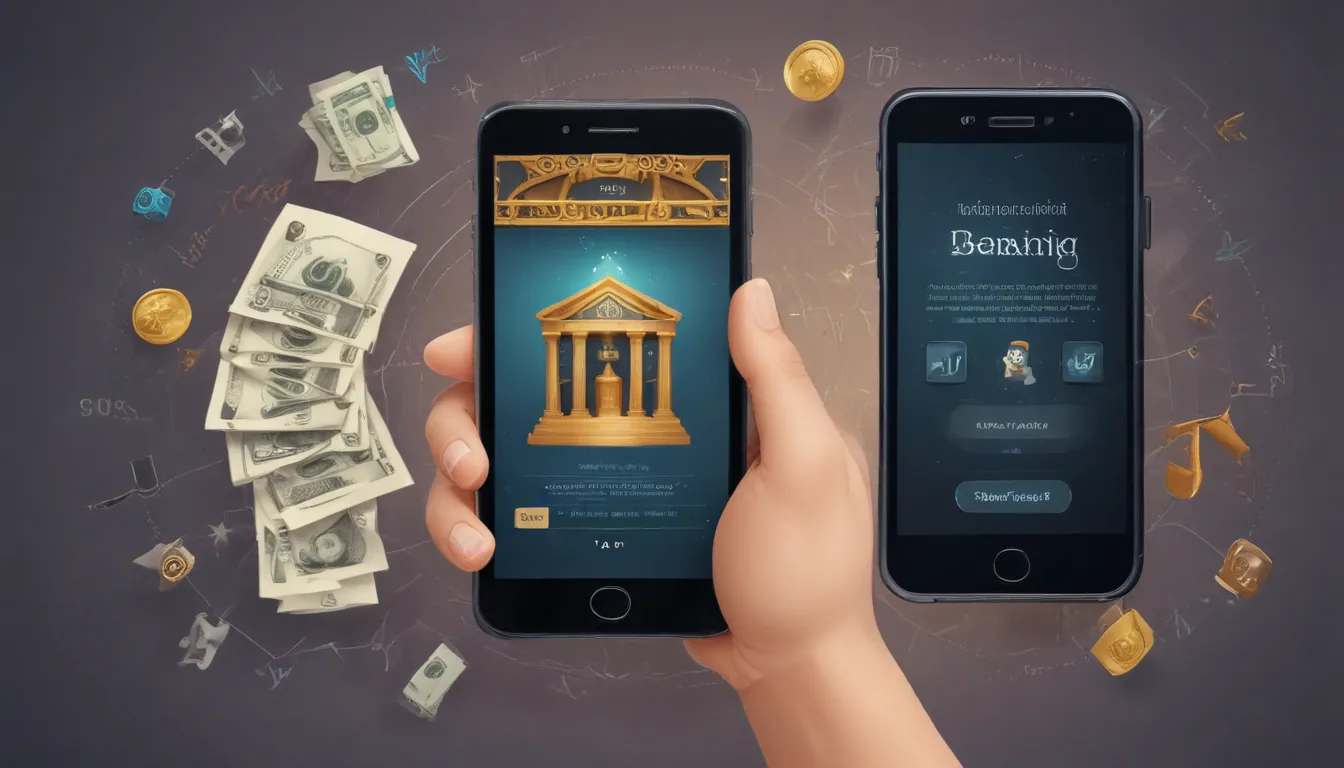A Note About Images: The images used in our articles are for illustration purposes only and may not exactly match the content. They are meant to engage readers, but the text should be relied upon for accurate information.
In today’s fast-paced world, mobile banking has revolutionized the way we manage our finances, offering unparalleled convenience and flexibility. From checking account balances to transferring funds and paying bills, mobile banking has made financial transactions easier than ever before. But what exactly is mobile banking, and how secure is it? What are the benefits and challenges it presents? In this comprehensive guide, we will explore these questions and more to give you a deeper understanding of this digital finance tool and its impact on our daily lives.
What is Mobile Banking?
Mobile banking refers to the use of mobile devices, such as smartphones and tablets, to perform financial transactions and manage bank accounts online. This convenient service allows users to check balances, transfer funds, pay bills, and more, all from the palm of their hand.
- Mobile banking has become increasingly popular due to its convenience, allowing users to manage their finances on the go.
How Secure is Mobile Banking?
Security in mobile banking is paramount, with banks employing advanced technologies to protect users’ information and transactions. Encryption, secure login processes, and regular monitoring are just a few of the security measures in place to prevent unauthorized access and fraud.
- Most banks offer a security guarantee, covering any losses due to unauthorized transactions, provided users have not been negligent with their account details.
The Evolution of Mobile Banking
Mobile banking has come a long way since its inception, evolving from basic services like account viewing to a wide range of functionalities that include mobile check deposits, peer-to-peer payments, and investment services.
- The first known instance of mobile banking dates back to 1999 in Europe with the advent of SMS banking.
Benefits of Mobile Banking
Mobile banking offers numerous benefits, making financial management more accessible and efficient for users.
- Users can access their bank accounts 24/7, monitor transactions and account balances in real-time, reducing the need to carry cash or visit physical bank branches.
- Many mobile banking apps provide budgeting and financial tracking tools to help users manage their finances better.
Mobile Banking Features
Banks are continuously enhancing their mobile banking apps with innovative features to meet the evolving needs of their customers.
- Features like facial recognition and fingerprint login make accessing mobile banking safer and quicker.
- Real-time alerts for transactions and low balances help users stay informed about their account activity.
- Some banks offer the ability to temporarily lock a lost or stolen debit card directly from the mobile banking app.
The Future of Mobile Banking
The future of mobile banking looks promising, with advancements focused on improving user experience and expanding services.
- Banks are exploring the integration of artificial intelligence and chatbots to provide personalized customer support and financial advice.
- The adoption of blockchain technology could enhance the security and efficiency of mobile banking transactions.
- Mobile banking is expected to play a crucial role in achieving financial inclusion, especially in remote and underserved areas.
Challenges Facing Mobile Banking
Despite its benefits, mobile banking faces challenges that banks need to address to ensure its continued growth and user satisfaction.
- Cybersecurity threats like hacking and phishing attacks remain a significant concern for users.
- The digital divide, or the gap between those with and without access to digital technology, can limit the reach of mobile banking services.
- Ensuring a user-friendly interface is crucial, as complex or unintuitive apps can deter users from adopting mobile banking.
Mobile Banking Around the World
Mobile banking adoption varies across regions, influenced by factors such as technology infrastructure, regulatory environments, and cultural attitudes towards digital banking.
- In some African countries, mobile banking has surpassed traditional banking, becoming the primary means of financial transactions for many people.
Embracing the Future of Mobile Banking
As we navigate the digital landscape of mobile banking, it’s clear that this modern convenience is more than just a trend—it’s the future of financial management. With each tap and swipe, users gain greater freedom, control, and efficiency in managing their finances. However, challenges like digital literacy and cybersecurity must be addressed for universal adoption. By staying informed and cautious, we can all embrace these technologies and bank on a safer, more accessible financial future.
Moving Forward Together
At our core, we are committed to delivering trustworthy and engaging content. Every fact on our site is contributed by real users like you, bringing a wealth of diverse insights and information. Our dedicated editors meticulously review each submission to ensure the highest standards of accuracy and reliability. Trust in our commitment to quality and authenticity as you explore and learn with us. Together, we can shape a better financial future through mobile banking.






